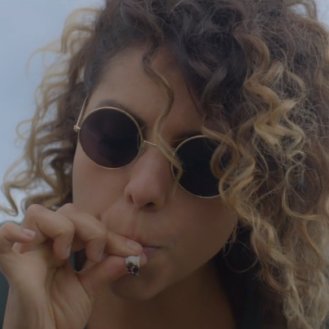The Transfiguration has an extraordinary premise. Judging by the way it’s carried out though, writer/director Michael O’Shea doesn’t realize just how special it is.
Pre-teen Milo (Eric Ruffin) is constantly reminded of how different he feels. The only recognition he receives is from neighbourhood bullies and thugs who call him a freak. Otherwise, he’s ignored in all social gatherings – including school. Milo uses the loneliness to study vampire lore through movies and literature. However, Milo’s curiosities turn into obsessions as he embraces a new diet and nighttime lifestyle.
O’Shea injects an inner city coming-of-age drama with elements of horror. Ruffin effortlessly slips into a role that requires a lot of inner tension and silent dialogue, and he pulls this off quite well. Milo is, frustratingly, a bit of a closed book until the final moments of The Transfiguration, but this is intentional on behalf of the filmmaker’s slow burn methods.
While occasionally graphic and surprising, The Transfiguration stays within the tiresome tropes of an inner city drama where a malicious gang rules the hood, endangering the fearful community. Even when Milo confides in a manipulated new kid (Chloe Levine of Netflix’s The OA), their chemistry doesn’t go deeper than being heady and friendly. O’Shea takes risks with some thought-provoking cliffhangers during the final leg of The Transfiguration, but it’s a filmmaking epiphany that is experimented with too late in the game.
The Transfiguration is decent, but it’ll leave you with a thirst.
**********
Do You Tweet? Follow These Tweeple:
Addison Wylie: @AddisonWylie





Be the first to comment